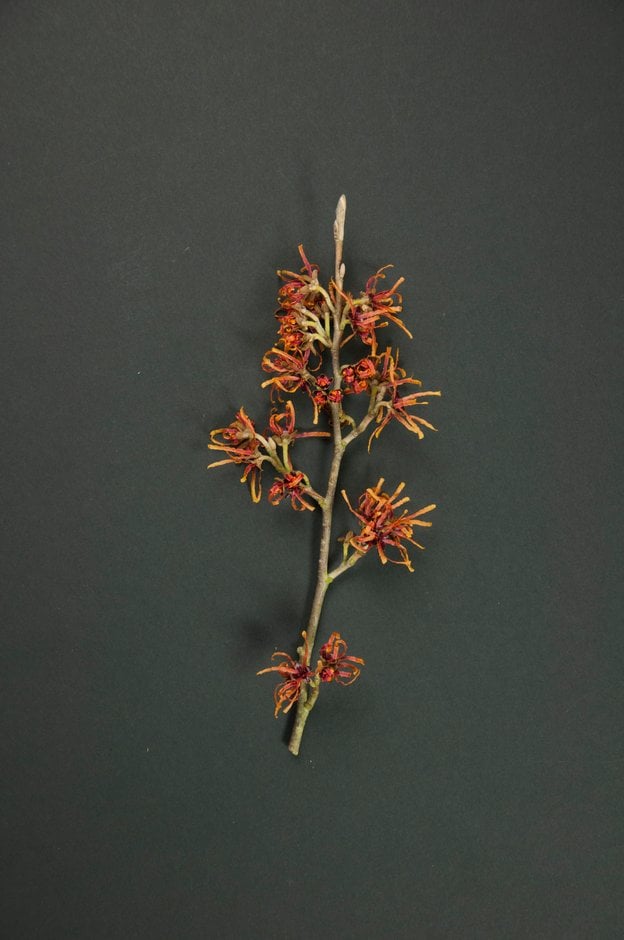Hamamelis × intermedia 'Burning Desire'
witch hazel 'Burning Desire'
A deciduous, rounded shrub to 2.5m tall and wide with broadly ovate leaves that turn shades of yellow and orange in autumn. Clusters of lightly scented, deep orangeflowers with crimped petals are borne on the bare branches in winter

Buy this plant
Size
Ultimate height
2.5–4 metresTime to ultimate height
10–20 yearsUltimate spread
2.5–4 metresGrowing conditions
Moisture
Moist but well–drained, Well–drainedpH
Acid, NeutralColour & scent
| Stem | Flower | Foliage | Fruit | |
| Spring | Green | |||
|---|---|---|---|---|
| Summer | Green | |||
| Autumn | Orange Yellow | |||
| Winter | Orange |
Position
- Full sun
- Partial shade
Aspect
West–facing or East–facing or South–facing or North–facing
Exposure
Sheltered Hardiness
H5Botanical details
- Family
- Hamamelidaceae
- Native to GB / Ireland
- No
- Foliage
- Deciduous
- Habit
- Bushy
- Genus
Hamamelis are deciduous shrubs with broadly ovate or rounded leaves, sometimes colouring well in autumn, and fragrant yellow to red flowers with 4 narrow petals, borne on the leafless branches in late winter and early spring, or in autumn
- Name status
Accepted
How to grow
Cultivation
Easy to grow in an open but unexposed site. Grows best in a neutral to acidic soil but will tolerate deep, humus-rich soils over chalk. See hamamelis cultivation for further information
Propagation
Propagate by grafting in late winter. Budding can be carried out in late summer and layering in autumn
Suggested planting locations and garden types
- Cottage and informal garden
- Low Maintenance
- Flower borders and beds
Pruning
Pests
Generally pest-free
Diseases
May be susceptible to coral spot, honey fungus, phytophthora root rot and powdery mildews
Get involved
The Royal Horticultural Society is the UK’s leading gardening charity. We aim to enrich everyone’s life through plants, and make the UK a greener and more beautiful place.